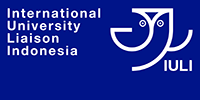
It was a warm re-union between Setyo Utomo and the Flight Test Division where Setyo had worked for more than 15 years before he retired and began lecturing at IULI. The Head of the Division, Mr. Yustinus Kuswardana, and his flight analysis expert, Mr. Derajat, were at the meeting. They talked about the possibility of sharing case studies with IULI in the form of thesis topics, class assignments, and internship programs.
To begin with, they focused Flight Test Data processing, which is concerned with how the data is acquired, analyzed and presented. The discussion started with the flight test sequence, which results in a huge amount of raw data. This data has to be sorted and checked by flight test analysts in order to understand the behavior of the aircraft. If the flight test sequence can be managed using a mobile device while the same device can collect respective information from the onboard computer, then the handover of information from the flight test engineer to the analyst will be seamless.
As digitalization has to be done before extensive analysis can be done, the topic of discussion moved to the subject of data management. The issue is not only managing the volume of the data, which is huge, but also the correlation between different data. This correlation is necessary to construct a solid record of aircraft behavior. This discussion led to the need to develop Flight Test Big Data and a cloud system. In addition, there was also a discussion which addressed the opportunity of adopting a new data processing framework using flow programming, such as Knime. This framework is not only capable of managing data processing modules, but also their different versions.
Returning to the objective of the discussion, which was to help students do a real case study, the discussion returned to the issue of data management. The meeting concluded that a Flight Test Cloud System would be developed as the starting point of this project. There will be a full semester class assignment of Computer Science System Design. This class will be managed by Invanos Tertiana, who has experience in teaching system development since 2009. It is also fortunate that Mr. Stepen, a junior Flight Test Engineer, was involved in the discussion. He brought ideas about big data and its relationship with flight analysis (data science section).
The subject of Computer Science System Design will divided into 14 weekly meetings. The first session will be Requirement Development, which will take 6 weeks, while the second session will be Prototyping, which will take 8 weeks. This class will employ an online collaborative framework and video conferencing because IULI and PT DI are located in different cities. The class will start in the middle of February, 2020, and will end in June, 2020.
The meeting, which had a full flavor of reunion, closed with the conclusion that IULI would submit a class syllabus that contains a 14 week session plan, while PT Dirgantara Indonesia will adjust to the scheduling.
(InT/CSE)
